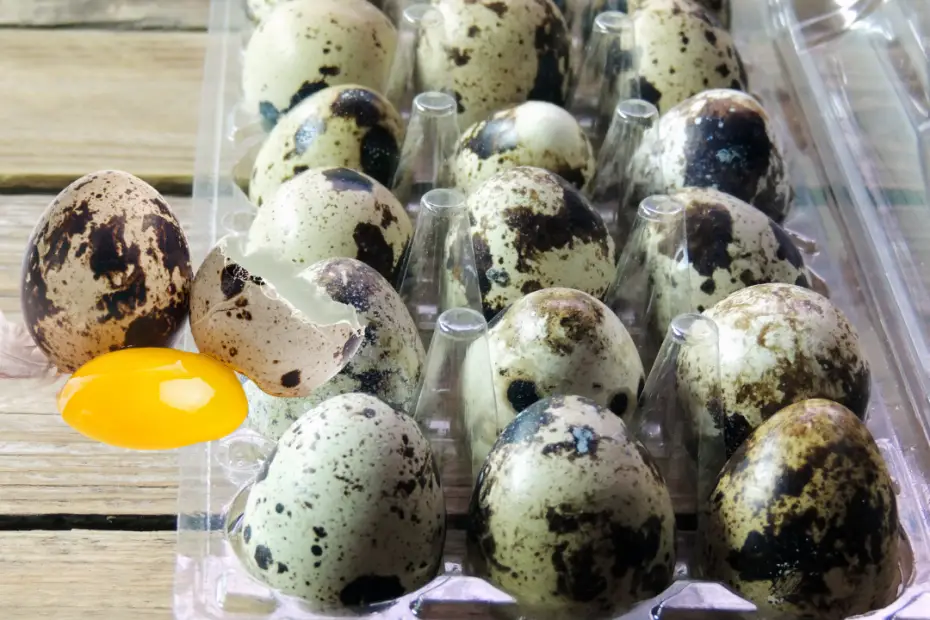It depends. You can still eat quail eggs a few days past their expiration date if they have been stored properly, but it is important to check their freshness first. A simple way to test is by placing the eggs in water; if they sink, they are likely still good, but if they float, they should be discarded.
Understanding Expiration Dates
Expiration dates on quail eggs are guidelines provided by producers to indicate peak freshness. While these dates are helpful, they are not always definitive indicators of spoilage. Eggs can often remain safe to eat beyond their expiration date if stored properly. However, it’s essential to use caution and perform additional checks before consuming them.
The Egg Float Test
One popular method to determine the freshness of quail eggs is the egg float test. To perform this test, fill a bowl with water and gently place the eggs in it. Fresh eggs will sink to the bottom and lay flat on their sides. If an egg stands upright or floats, it may be stale or spoiled. This test works because as eggs age, the air cell inside enlarges, causing them to float.
Why the Float Test Works
The science behind the float test is straightforward. As eggs age, moisture and carbon dioxide inside the egg gradually escape through the porous shell, causing the air cell to grow larger. This increased buoyancy can make older eggs float. However, it’s important to note that the float test is not foolproof and should be used in conjunction with other methods to ensure safety.
Check out how to do the float test video below.
Additional Freshness Tests
In addition to the float test, you can also check the freshness of quail eggs by cracking them open. Fresh eggs will have firm, well-rounded yolks and thick whites. If the yolk appears flattened or the white is watery, the egg is likely past its prime. Another method is to smell the egg; a sour or sulfur-like odor indicates spoilage.
Health Safety Issues
Consuming spoiled eggs can lead to foodborne illnesses caused by bacteria such as Salmonella. Symptoms of Salmonella infection include nausea, vomiting, diarrhea, and abdominal cramps. It’s crucial to handle eggs safely, store them properly, and cook them thoroughly to minimize the risk of illness.
Quail eggs are generally less risky for salmonella compared to chicken eggs. One key reason is that quails have a higher body temperature, which makes it difficult for salmonella bacteria to survive. Additionally, quail eggs contain more lysozyme, an enzyme with antimicrobial properties that helps reduce the risk of bacterial contamination.
USDA Guidelines
According to the USDA, eggs should be stored in the refrigerator at or below 40°F (4°C) and consumed within three to five weeks of purchase for optimal safety. The USDA also advises against consuming raw or undercooked eggs due to the risk of Salmonella contamination.
What the USDA Says About the Egg Float Test
The USDA acknowledges that while the float test can indicate an egg’s age, it is not a definitive measure of safety. An egg that floats may still be safe to eat if it passes other freshness checks and does not show signs of spoilage. Therefore, it’s essential to use multiple methods to assess the quality of your quail eggs.
Proper Storage
To extend the shelf life of quail eggs, store them in their original carton in the coldest part of the refrigerator. Avoid placing them on the refrigerator door, where temperature fluctuations are more common. Proper storage can help maintain the eggs’ freshness and reduce the risk of spoilage.
Conclusion
In summary, while you can sometimes eat expired quail eggs, it’s essential to perform freshness tests such as the float test and check for signs of spoilage. Always prioritize health safety by following proper storage guidelines and USDA recommendations. By taking these precautions, you can enjoy quail eggs without compromising your well-being.
